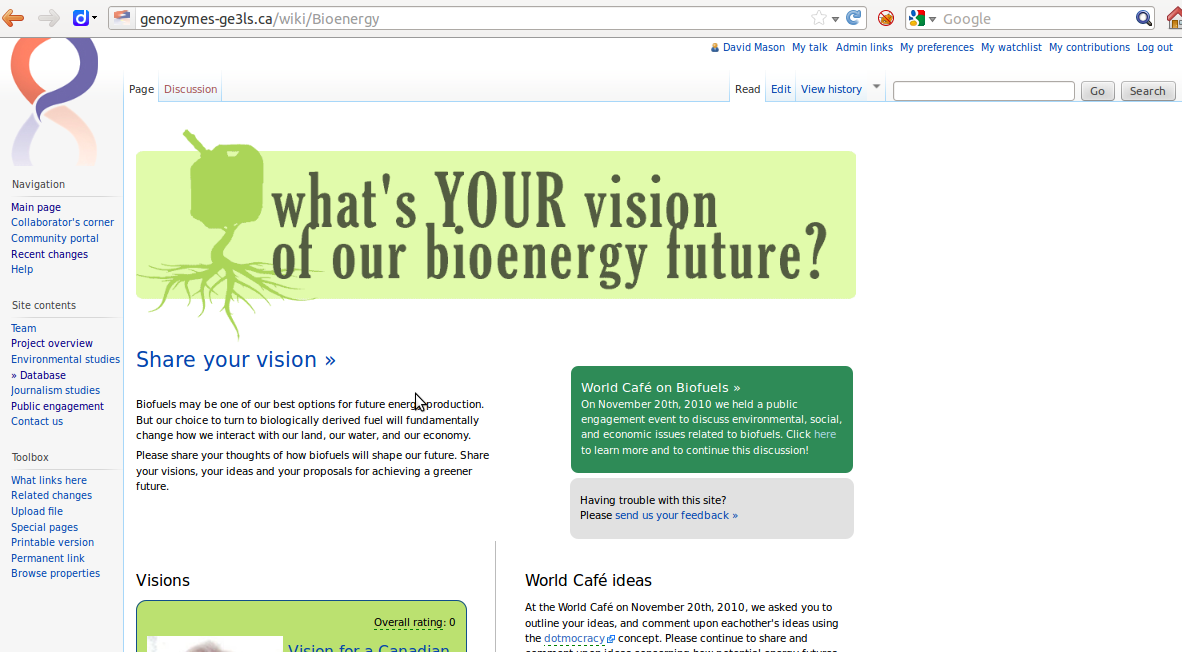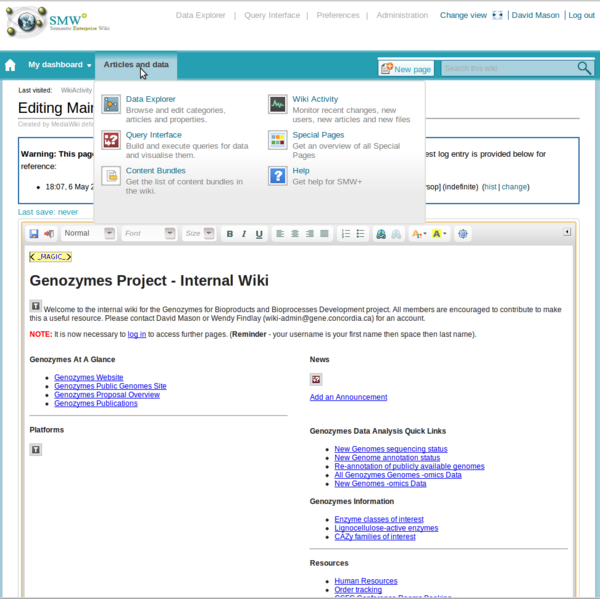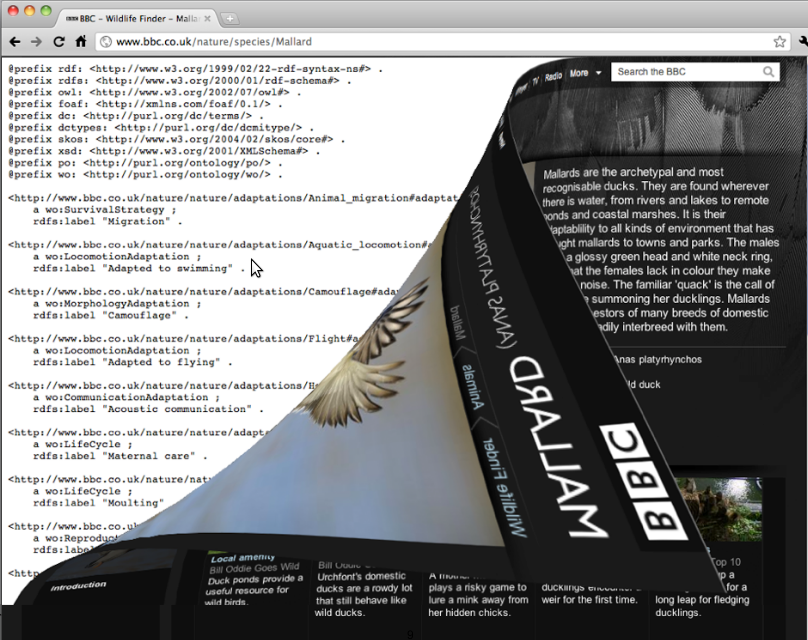Wikis and Semantic Mediawiki: Difference between revisions
| Line 8: | Line 8: | ||
Wikis apply '''cultural associations''' and '''technical abilities''' to generate '''reusable content'''. | Wikis apply '''cultural associations''' and '''technical abilities''' to generate '''reusable content'''. | ||
* [http://www.slideshare.net/MarkDilley/amc-presentation-wiki-research-for-activists more on wikis and community] | |||
Since wikis are a hypertext system, there isn't really one "index," users can follow arbitrary paths, usually by following links or browsing categories. | Since wikis are a hypertext system, there isn't really one "index," users can follow arbitrary paths, usually by following links or browsing categories. | ||
Latest revision as of 12:53, 5 July 2012
Background information
Note: This page primarily applies to Mediawiki, the software used by Wikipedia and many other web sites.
Wikis are distinguished from websites by enabling easy editing and understanding of ongoing changes, often by any person but sometimes restricted. Wikis often use a simple markup language, rather than a word processor type view.
The main wiki features are the ability to link to pages, create pages, see how pages were created, add pages to categories, and to view page and site-wide changes.
Wikis apply cultural associations and technical abilities to generate reusable content.
Since wikis are a hypertext system, there isn't really one "index," users can follow arbitrary paths, usually by following links or browsing categories.
Wikis are well suited to brainstorming, since future links can be created easily. They're well suited to organizing information, typically by adding categories and sub categories.
Wikis can also become a front for wide involvement, although it's not usually expected everyone will become a full editing participant.
Mediawiki allows creating "templates," which are a way to re-use blocks of structure or content. They're used for infoboxes on Wikipedia.
Category:Taxoboxes_using_extinct_parameters on Wikipedia
The appearance of wikis can be changed like many other Web systems.
Advantages of wikis
- Shared content and structuring
- Fewer isolated notebooks
- Exchange ways of doing things
- Even read-only, can treat any web site as a toolkit
- See all changes
- Who did what
- How things were done
- Designed to manage the content and perspectives of many people
- Wikipedia & wikimedia projects leading the way
- Awareness of issues like symbol grounding
- All content is in an editable multi-user, hypertext space
- Reusable
- No lock in
- Vibrant future
- Database features
Disadvantages
- Have to learn wiki markup
- rich text editors are available
- Simultaneous editing
- learn to use section edit
- Forgetting to frequently save changes
- Associations with default appearance
How (semantic) wikis can be used
- Personal content organizing
- Workgroup content management
- Documentation
- Lightweight databases
- Item management
- People, places, things, etc
- Workflow
- Task tracking
- Item management
- In the linked web
Sample sites
- http://genozymes-ge3ls.ca/wiki/Proponent_Facet_browser
- https://energypedia.info/index.php/Main_Page
- http://muppet.wikia.com/wiki/Muppet_Wiki
- http://www.snpedia.com/index.php/SNPedia
- http://www.discoursedb.org/wiki/Main_Page
Access models
- Fully private
- Read only
- Full read write
- Anonymous editing
- ACL (with extension)
Semantic wiki
Semantic MediaWiki enables finer information re-use with database like features.
It uses the Semantic Web idea of "triples," where the current page is the subject, a link type is the predicate, and the target is the object. Objects can be other pages, or literals — dates, numbers, etc. These expand on Mediawiki links, using a syntax that looks like this:
- [[has example property::15]] this page (the subject) has a predicate "has example property" which has a literal value of 15.
- [[has next page::Semantic Mediawiki and the Semantic Web]] this page (the subject) has a predicate "has next page" which is "Semantic Mediawiki and the Semantic Web."
So, rather than cutting and pasting information that's contained in one place to "re-use" it, instead use a query, using the "ask" syntax. For example, to see a list of wiki users, you can add {{ #ask: [[Category:User]] }} to any page, which will be live updated.
External applications can also interact with wiki content, so content can be shared between wikis and other web sites. This is the idea of the "semantic web," where content across the web can be consistently found and re-used.
Next: SMW properties


